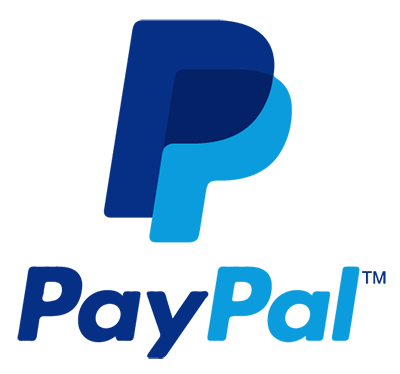How I Started A $30K/Month Dating And Relationship Coaching Business
Hello! Who are you and what business did you start?
Hello everyone! My name’s Pat Stedman and I’m the founder of The Dynamic Man, LLC. I started the company in 2015 when I decided to officially break into Dating and Relationship Coaching.
My main services are, as you might expect, coaching services. All my work at this point is done over the phone. Depending on the coaching package and needs of the client, I might be working with men for as little as 3 months to a year or longer. Very often I’ll work intensively with a client for 6 months or so, and then once they’re on a good trajectory, we’ll adapt to a more flexible relationship.

But honestly, it depends on the client himself and his needs. Some men need just a single shift to get where they want to be with women; others need a massive overhaul. The range of my packages with their varied length and access attempts to reflect that.
The main addition to my coaching services is a 19-hour video product called “The Pat Stedman Masterclass.” This course was originally produced to be a resource for coaching clients; it is basically an encyclopedia of material on deep work, female psychology, attraction, dating strategies, relationship intimacy — and increasingly more esoteric and advanced topics. However, now it’s a flagship product on its own. Very often men who can’t afford to coach yet will purchase it as a first step towards working with me.
Finally, I also have a texting book — really, a manual — called “Tackling Texting.” This is about 80 pages and for kindle-only. It’s an excellent resource for guys who want to learn how to message girls and get them on dates. I make every client get it!
Like any consulting business, income varies month to month, as coaching brings in the bulk of revenue. But on average I pull in around $25,000 - $35,000 each month. Income’s been steadily increasing as my brand grows — fortunately, more and more are coming from the Masterclass, which is passive income. I do minimal marketing, although that will be changing in 2021, so I expect this to increase considerably shortly.
My “high-quality problem” at the moment is that I have a very large number of clients, and need to find a way to balance fulfillment with future growth. I love the men I work with, and refuse to give up quality for increased revenue. It’s so rewarding to see guys come to you confused or hurt and to emerge confident and capable. It’s also entertaining at times — guys have some crazy experiences with women!
What's your backstory and how did you come up with the idea?
Like many men in my niche, I first came into coaching by being coached. When I was 20 years old, my first girlfriend broke up with me. She was a beautiful girl — and even though the relationship wasn’t healthy, I was completely lost when this ended. I didn’t understand women or how to attract them… I was helpless.
Everything changed when I read the NYT best-selling book, “The Game,” in 2008.
This book opened my eyes to the world of attraction and seduction — but most importantly — it showed me that I could change. I could learn how women worked, and I could get better with them. I could become a more confident, socially adapted, and successful man. Who I was wasn’t set in stone, and neither was my destiny.
This set me on a journey for the next 6 years of dating and understanding women. I tried on a lot of different “personas” during this time — some of which are embarrassing to recall today — but through the process, I started to realize games and tricks weren’t the real goals. What I wanted was to accept myself, and connect on a deep level with a woman who would also accept me. The more authentic I became, the better relationships I had.
I had been helping some other guys in a private group who were on a similar journey, and I started to be recognized as a “leader” or “expert” on these things. So when I decided to get out of my corporate job, they encouraged me to start coaching professionally. So I did, and here I am.
Describe the process of launching the business.
The beginning of the business was an exciting thing. You really felt like the sky was the limit — you were finally free! You had the flexibility to create your own schedule while doing something you loved and could make as much money as you dreamed.
But the reality, as any entrepreneur knows, is that starting a business isn’t flowers and sunshine. I was fortunate because of my reputation and connections to have some “low hanging fruit,” so I had a few clients almost from the very beginning. But within 6 months that fruit was plucked, and I saw my client prospects dwindle to a trickle. Moreover, I wasn’t sure of my own voice — was I really a good coach? What did I know compared to other experts? I struggled with self-sabotage, and many days put in minimal work towards content-creation.
To address this inner sabotage, I got a coach myself. This was crucial for a lot of reasons — not only did it help bring a lot more awareness to my unconscious patterns, but it also taught me how to do inner work in my coaching. I changed a lot of things around and became a better practitioner in the process.
But part of the imposter syndrome wasn’t just mindset related — I felt like what I knew was “stale.” I needed more ideas, more awareness around my subject matter. So I gradually began to move my business from Facebook to Twitter. This proved to be a crucial decision in my business, as most of the serious conversations around male-female dynamics were occurring there. However, this was in many ways a step backward, as I had NO presence on the platform. I had to start from scratch.
For about a year and a half, I was largely unknown and had minimal business. It was definitely a tough period, but it set the foundation for success in the future. By early 2017 I had found my voice — and by the end of that year, though my business was still far from “successful” — I could see the light at the end of the tunnel.
Much credit to my wife during these first two years — she pretty much carried the family financially. Fortunately, the business didn’t require too much in terms of start-up costs — but there was no question we were running a deficit. And living in NYC isn’t cheap!

Since launch, what has worked to attract and retain customers?
Customers are drawn predominantly to my nuanced way of looking at things. When I joined Twitter, I found myself in a corner of the internet known as the “manosphere.” If you look that up, you’ll probably find a bunch of inaccurate and uninformed articles saying everyone there is a misogynist or whatever.
The reality is that it’s an extremely diverse community with a lot of different viewpoints. The only unifying feature is that we all view dynamics between men and women today to be largely unhealthy in need of fixing. How this is achieved, however, is a separate conversation — one I inserted myself into.
Unfortunately — or fortunately, depending on how you look at it — there are a lot of dogmatics in this corner, who have a very black and white view of women. This was bad for a lot of men, but in a strange way good for me, because this how I found my voice… and ultimately my client base. Without naming anyone, I took on some big accounts in 2017 by taking issue with their recommendations and conclusions. At first, I was fairly isolated, but gradually my views began to win out.
What specifically attracted clients was that I looked at dating and relationship issues between men and women in context. I was honest about the differences between men and women, but also very aware that men and women were individuals with their own personalities. I’d always look at the details in a situation before recommending a course of action, and weighed different variables — I didn’t just apply some blanket formula.
As a result, my coaching practice began to bloom. I helped men improve their dating lives and relationships, and they recommended me to others. Most of them wanted to work with me continuingly because they trusted both my judgment and the fact that I cared about them.
Have patience. It takes years to build up a reputation. It takes years to build up insight. This is a very saturated market, and most don’t make it, mainly because they give up early. The first two years I made almost nothing,
How are you doing today and what does the future look like?
I can’t say I’m complaining! Business is excellent. In 2017 my prices were low — $500-$1,000 per retainer— but I was working with a good amount of men. In the Spring of 2018 I doubled my prices, and in the Fall (after some business coaching) finally moved into what I would call a “high ticket” — $3,700 per retainer.
In February 2019 I finally hit my first “five-figure” month. By November of that year, I had so many clients I raised my retainer prices yet again to $5,200. And now as we close out 2020, I’m raising them again. At this point, I’ve worked with well over 200 clients — and add on average 5 new ones each month. My biggest concern is honestly fulfillment — I’m getting too many!
My main objective going forward is to put more emphasis on marketing and selling the masterclass, as it’s passive income and won’t add to my heavy client load. I’m in the process of making a funnel for this and will be finally running my first ads early next year. Last year I was just shy of $250,000 revenue; this year will be closer to $350,000. Most of that jump is due to the masterclass. I’d love to increase that margin even further — to pull in $500,000, and to have half of that be passive.

Think long term and enjoy the journey. Working for yourself is incredible, but at minimum, it will take many months and more realistically many years until you will “make it.”
Through starting the business, have you learned anything particularly helpful or advantageous?
Probably the biggest lesson is to do the work you want your clients to do. I know around 20 other people who started coaching practices around the same time as I did. All but one of them are out of business now. The reason?
First, they thought of coaching as a 4-Hour Work Week / “Get Rich Quick” scenario. They believed people would just work with them… but never asked themselves, why? There’s a trope about people becoming life coaches because they don’t know what else to do with their life. Sadly, it’s true. If you want to be a good coach, you need to constantly invest in yourself. Mine that inner gold, do what you want your clients to do. Transform yourself — it’s the only way you can transform them.
And connected to the above is the second biggest lesson — have patience. It takes years to build up a reputation. It takes years to build up insight. This is a very saturated market, and most don’t make it, mainly because they give up early. The first two years I made almost nothing, the third I made just a little, the fourth I earned a little more — it wasn’t until year five that I hit six figures. It took 2.5 years of working without reward until I got my “lucky break” and had people finally pay attention to me. But most coaches will give up well before success comes to them.
What platform/tools do you use for your business?
My business social media is pretty much entirely run off of Twitter, however most of my financial conversions through email. I have an email list, currently on Mailchimp, where I write long-form content ~3 times each week. Each of these emails has in-depth material on dating and relationships, with a pitch at the end, either for coaching or my masterclass. I get people on the list by pitching it regularly on Twitter.
Other than that, my business is pretty bare-bones. I have an old website, where I put old emails and more in-depth blog posts. I use google forms for my coaching applications and accept payment generally through PayPal or Stripe.
My masterclass is hosted on a site called Thinkific. I have a client-only group on Telegram where clients can ask questions in between calls. Not much else besides that. I’m not very tech-savvy and try not to overcomplicate my business.

What have been the most influential books, podcasts, or other resources?
The most important books related to my coaching practice have been No More Mr. Nice Guy by Robert Glover and The Way of the Superior Man by David Deida. The former addresses crucial psychological issues probably 90% of my clients have to some extent; the latter is probably the most advanced book on masculine and feminine dynamics that exists.
Most of my greatest insights have come from mentors, however — and I seek them out whenever I think they know something I need. A shortlist: Nick Sparks showed me how to approach women. Alex Allman was responsible for teaching me how to navigate relationship issues. And without Lorraine DeLear I would have never understood attachment patterns or energy.
Advice for other entrepreneurs who want to get started or are just starting?
Think long term and enjoy the journey. Working for yourself is incredible, but at minimum, it will take many months and more realistically many years until you will “make it.” You need to really want this — you need to decide there is no going back.
When I wasn’t earning much, there was no question in my mind about quitting. I didn’t know how long it would take — but I knew I would figure it out. Even when everybody thought I was crazy — and this was the case for easily 3-4 years — I knew that this was what I was destined to do. I loved the struggle. It’s that sort of persistence that separates the wheat from the chaff.
And don’t let anybody fool you — it’s persistence that leads to “lucky breaks.” People call you an overnight success when you suddenly make it, but they never see the years you were in the shadows almost completely ignored and probably laughed at.
Finally, make sure you are doing what you are trying to help clients to do. It’s crazy how many coaches expect people to work with them… when they won’t get coaching themselves. Coaching is about sharing your expertise, but even more importantly — it’s about transferring your own energy and alignment to the client. If you’re a hypocrite or your life is a mess, you won’t only have a harder time selling, you’ll struggle to provide value to those you do manage to sign.
Are you looking to hire for certain positions right now?
Not at the moment. Most of my work that I don’t feel like doing — for instance ads and accounting — I contract out. The first person I hire will probably be a part-time personal assistant — there are a lot of minor tasks that fall by the wayside, and these are starting to pile up. But until I have a clear sense of what I want someone to manage, I feel like hiring someone will just cause me more stress.
Where can we go to learn more?

Download the report and join our email newsletter packed with business ideas and money-making opportunities, backed by real-life case studies.

Download the report and join our email newsletter packed with business ideas and money-making opportunities, backed by real-life case studies.

Download the report and join our email newsletter packed with business ideas and money-making opportunities, backed by real-life case studies.

Download the report and join our email newsletter packed with business ideas and money-making opportunities, backed by real-life case studies.

Download the report and join our email newsletter packed with business ideas and money-making opportunities, backed by real-life case studies.

Download the report and join our email newsletter packed with business ideas and money-making opportunities, backed by real-life case studies.

Download the report and join our email newsletter packed with business ideas and money-making opportunities, backed by real-life case studies.

Download the report and join our email newsletter packed with business ideas and money-making opportunities, backed by real-life case studies.









